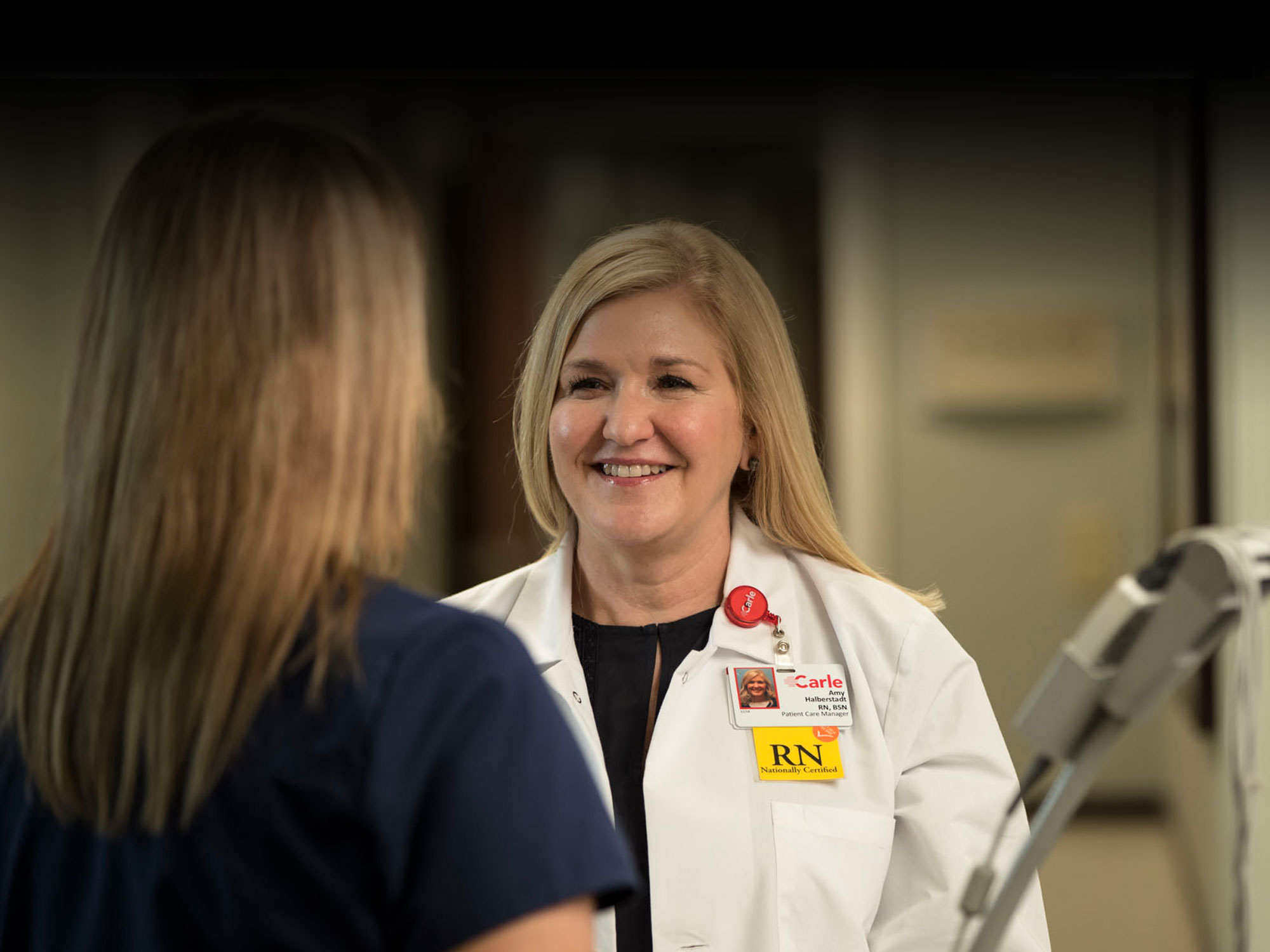
The nursing staff at Carle Richland Memorial Hospital have practiced patient rounding with the case management team to communicate information about the hospitalized patients. Case management is a group of nursing staff dedicated to care coordination and patient transitions.
“Historically, this meeting would occur but would not always move the care of the patient forward since it included limited members of the healthcare team”, said Sarah Fehrenbacher, MPH, director of Quality at Carle Richland Memorial.
Fehrenbacher, as well as nursing director Dusty Inboden-Harrison, RN, CPHRM, CHC knew that this process needed to be expanded and improved and were advocates for this project. They worked with Quorum Health Resources, a healthcare consulting group to evaluate and move the work forward. The project started at the end of 2018 and solidified throughout 2019.
The first charge was to assure that all of the disciplines in the healthcare team have the opportunity to be present for care coordination. This required a daily scheduled meeting where all members of the healthcare team came together to achieve this goal. Many disciplines take part in the process and are included in the daily care coordination meetings.
The interdisciplinary team includes the following members:
- Nursing
- Case Management
- Discharge planning
- Respiratory Therapy
- Pharmacy
- Dietary
- Physical Therapy
- Occupational Therapy
- Hospitalist physician
The team set a time each weekday morning to meet. Each discipline receives talking points for the meeting and the team talks through each hospitalized patient. Patient discussion includes patient and caregiver goals, timelines and discharge plans. Members of the team receive action items and proposed timelines to add needed accountability to progress initiatives.
Unit charge nurses are now the facilitators of the meeting. These charge nurses are specially-trained to manage the discussion and pursue concerning patient care items that require follow up and assign the work to the appropriate individuals.
As this initiative took shape, nursing leadership took time to observe the rounding process to determine the quality of the meeting, the time frame, and assure all necessary elements are addressed.
“This project helped bring the care team together and made the time more productive for them and the patient,” Fehrenbacher said.
In addition to the improved teamwork and productivity, over the past year, the team at Richland has seen improved patient satisfaction scores relating to care transitions.
With these improvement efforts, we now have a true interdisciplinary approach to coordination of patient care,” Gina Thomas, DNP, RN, NEA-BC, the Richland chief Nursing officer said.
